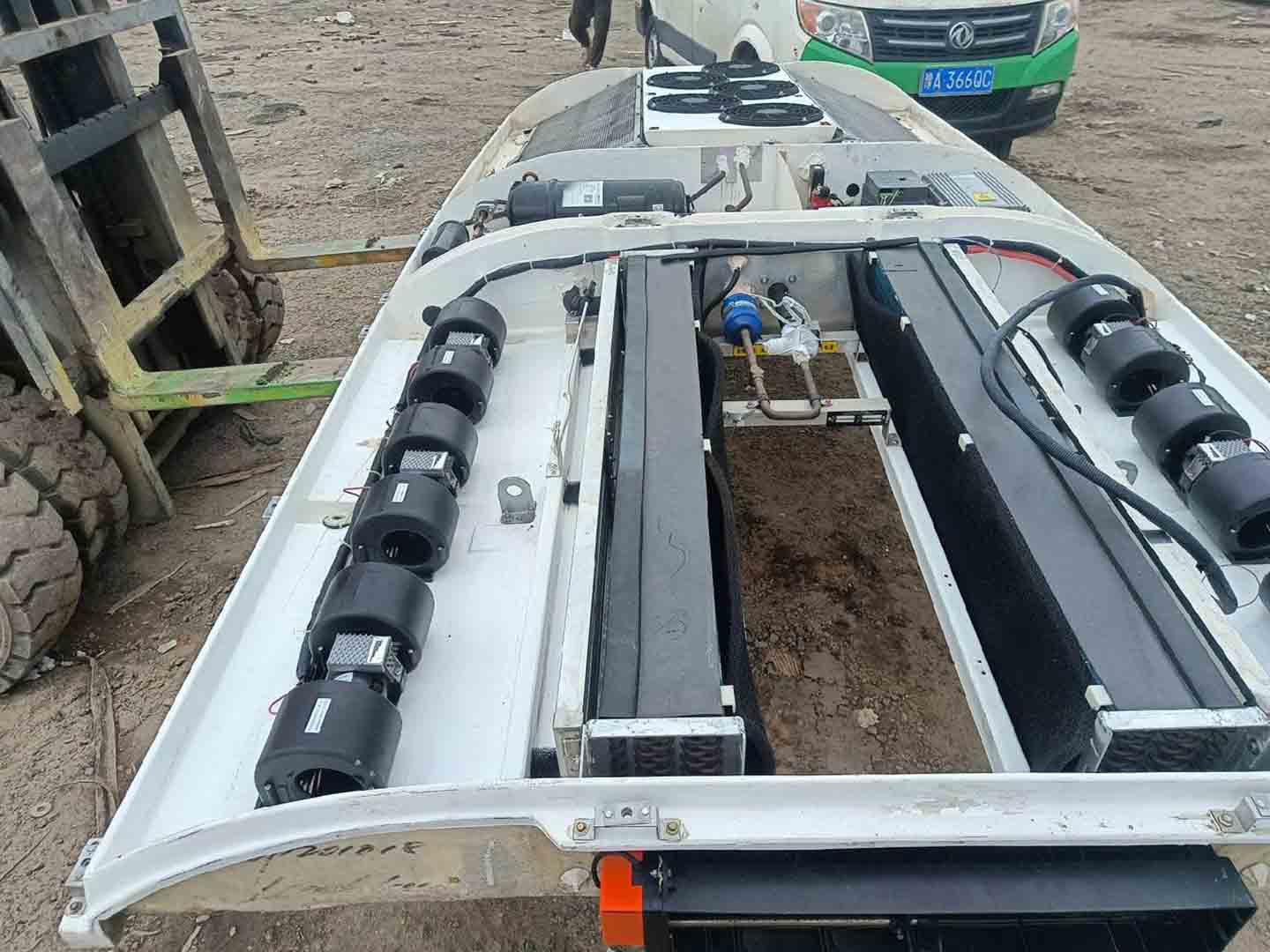Introduction to Coaches HVAC
Coaches HVAC is largely due to bad driver habits, so ask yourself: Do you really know how to use bus air conditioning? As the weather gets hotter, bus owners are using bus air conditioning more frequently. However, there are many common misconceptions about air conditioning use that can not only affect your health but also damage the vehicle. Therefore, before turning on "bus air conditioning mode," it's important to understand the following misconceptions. Let's take a look at how to use bus air conditioning.
 How to Use Coaches HVAC
How to Use Coaches HVAC
A bus air conditioning system cools, heats, ventilates, and purifies the air in the vehicle. It provides a comfortable riding environment for passengers, reduces driver fatigue, and improves driving safety. Different types of air conditioning systems have different layouts. Sedans widely use integrated heating and cooling systems. These systems combine the evaporator, heater radiator, centrifugal blower, and operating mechanism into a single unit, known as the air conditioning assembly.
How to Use a Coaches HVAC System - How to Determine If the Air Conditioning System Is Cleaned
1. When the air conditioner is first turned on and the air has not yet fully cooled or heated, you may smell a mildew-like, smoke-like odor.
2. When cooling or heating, the air coming out of the vents is not fresh, with a sour or other unpleasant odor.
3. Reduced cooling efficiency and increased fuel consumption. This is caused by excessive dirt and buildup in the evaporator due to long-term cleaning.
4. Nasal discomfort, coughing, chest tightness, and other discomfort may occur while inside the vehicle.
5. The air conditioning system has not been cleaned or maintained for over a year.
Benefits of Cleaning a Coaches HVAC System
1. Enhanced cooling. Cleaning with a specialized cleaning agent removes dust and dirt from the air conditioner, allowing for smooth airflow and significantly improved cooling efficiency.
2. Health Benefits. Cleaning with a specialized cleaning agent not only significantly reduces the risk of "air conditioning syndrome," but also purifies the indoor air and eliminates unpleasant odors.
3. Extends the life of the air conditioner. After cleaning with a special cleaning agent, the air conditioner's operating environment changes, extending its lifespan and keeping it looking like new.
4. Reduced power consumption. The improved air conditioner environment after cleaning improves operating efficiency, which in turn reduces power consumption.
5. Reduced expenses. After cleaning and maintenance, air conditioners experience lower failure rates and lower power consumption, resulting in significant cost savings.
Coaches HVAC Tips
First, don't rush to turn on the air conditioner as soon as you get in your car.
This is especially true for cars that have been parked overnight. The air inside the closed car is very polluted due to the extended period of time. Consider the consequences of turning on the air conditioner for recirculation. The best approach is to open the windows first, then turn on the external recirculation to remove the exhaust air, then close the windows and turn on the air conditioner. Similarly, for cars that have been exposed to the sun for a long time, open the windows first and turn on the external recirculation to remove the hot air, then close the windows and turn on the external recirculation.
Second, switch between internal and external recirculation.
Some cars have separate buttons for internal and external recirculation, while others only have a button for internal recirculation. When the light is on, it's internal recirculation; otherwise, it's external recirculation. Imagine using the internal recirculation system for extended periods of time. This is the equivalent of repeatedly breathing in this secondhand air, especially during long journeys. This is why people feel stuffy. Of course, many cars now have automatic ventilation, switching to external recirculation after a certain period of internal recirculation. However, if driving in a city, it's recommended to switch to external recirculation in areas with fewer cars and more greenery.
The A/C switch
The A/C switch is the compressor switch for the air conditioner. Turning it on allows the air conditioner to cool; otherwise, it only blows air. Once turned on, this activates a series of cooling devices. These devices generate moisture as they cool the air, which, combined with the engine's ambient temperature, can cause the air conditioner to produce an odor. Therefore, it's best to turn off the A/C a few minutes before arriving at your destination and increase the airflow to allow natural airflow to dry the pipes and prevent odor.
When it comes to cleaning bus air conditioners, many people have questions: Why should we clean them? What happens if we don't? In fact, when a bus air conditioner is in operation, 80% of the tiny dust and bacteria in the air pass through the filter and enter the air conditioner. There, they combine with condensed water and clog the evaporator, affecting both cooling and heat dissipation. The damp environment and dust on the surface of the evaporator and ventilation ducts provide a breeding ground for mold and fungi, producing a decaying odor. This odor, when the air conditioner is turned on, contaminates the entire interior of the vehicle and is absorbed into the human body, causing "bus air conditioner disease." Therefore, cleaning the bus air conditioner is essential.
